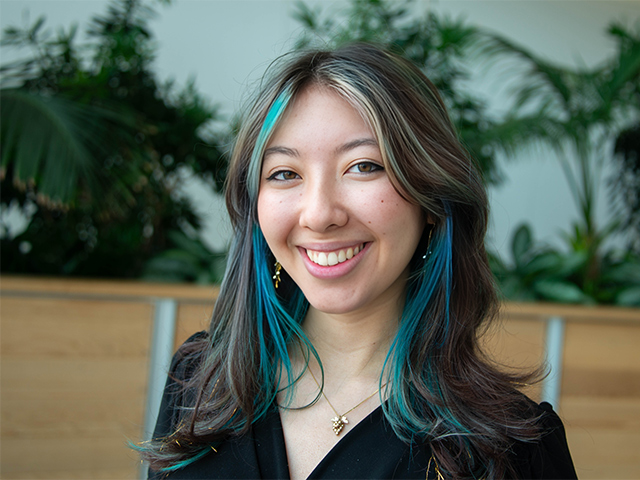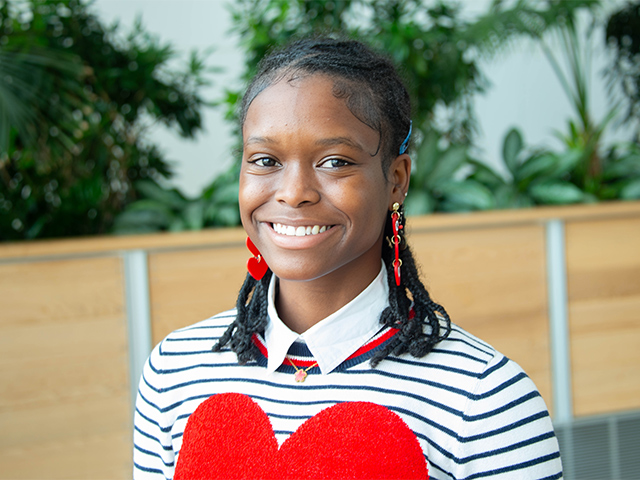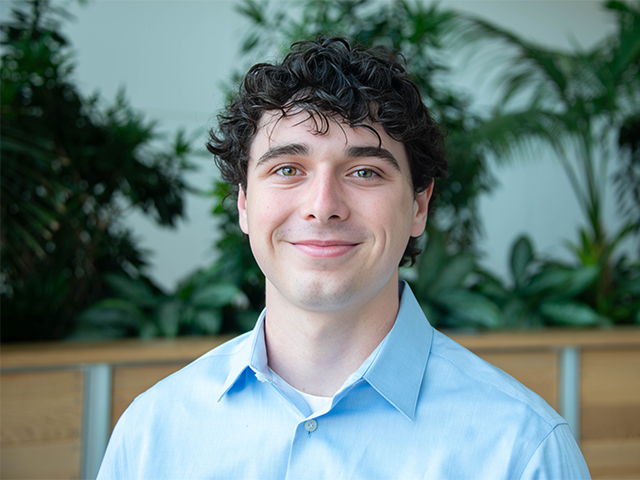Meet the 2025 REU Cohort: Growing the Plant Scientists of the Future
Each summer, exceptional undergraduate students from around the country are invited to join the Research Experience for Undergraduates (REU) internship program at the Danforth Center. This program offers young scientists an invaluable opportunity to immerse themselves in all facets of modern scientific research. It's a rare chance to work with cutting-edge technology alongside world-class plant scientists.
The REU program at the Danforth Center is funded by the National Science Foundation (NSF). The Danforth Center is also grateful for the Saigh Foundation which, through the generosity of the Fred M. Saigh Internship Fund, stepped in to provide funding while the Danforth Center waited for the arrival of expected NSF funds. The REU program is designed to equip the next generation of scientists to tackle some of the most pressing challenges of our time. Students who participate in the REU program leave inspired and motivated to be a part of this future.
We spoke with a few of this year’s REU students about the highlights of their experience and what their plans are for the future.
Serene Cheng
What did you learn as an REU intern?
Since there were no labs at my home institution, I was thrilled to finally conduct experiments and learn new skills, which I absolutely have enjoyed. However, I think my favorite part of this experience has been meeting new people doing work in this field and hearing about their new research and learning about the exciting startups. I have a much better sense now of what agricultural biotechnology entails and how many possibilities there are. There are many more opportunities than I expected, from leading a team to working in science communication to running a core facility.

What are your future career goals?
I want to do research on gene editing to address environmental issues and food insecurity. I plan to pursue a career in academia to combine my love of science and teaching, hopefully contributing to research that will positively impact the world while sharing my love for biology with students. My current plan is to spend a year in industry after graduation before applying to graduate school, though I'm sure I will learn a lot that may influence that decision over the next two years.
ZhakeYa Hawkins
What were some of your takeaways from the REU?
I have really enjoyed authentic scientific exploration and gained hands-on experience! My two big takeaways are practicing patience and observation.
I learned patience during the first week of the program and the final week. During the first week, I was slowly getting the motions down and meeting all cohorts and Danforth representatives at orientation. This last week was all about swiftly meeting all deadlines as my project intensity picked up. I learned a lot about data science software and contributed to PlantCV through the Machine Learning Tutorial DOI as seen on Zenodo! I also applied data visualization to my project, which helped make my data sets understandable and enabled me to draw proper conclusions.
I learned observation through my mentor, Research Scientist Keely Brown, PhD, and Data Science Facility Director Noah Fahlgren. From the beginning, they showed openness by asking me to join them at the New Roots for Restoration Biological Integration Institute Annual Meeting in Salina, Kansas. They invited me to participate in regular meetings about PlantCV development, phenotyping, and data science collaboration with the Gehan Lab. This allowed me to observe the dynamics of meetings, from how people spoke to one another to time management. I am a scholar-athlete, so time blocks are really important to me.

What are your future career goals?
My future has already been shifted two years ahead. Through East St. Louis Senior High School’s Running Start Program, I was able to graduate high school as a salutatorian as well as a first-generation graduate from Southwestern Illinois College with my associate’s degree in science! I took lots of math classes because my drive and passion align with all varieties of numbers. As I interned with JJK FAN, I saw that the STEM+Ag route was a YES for me. This internship indicated to me that I have a love for plants—I have a green thumb for my thriving houseplants.
There was one specific day that it all clicked: I was at the Danforth Center learning more about ArcGIS with Parag Bhatt, PhD. He was marvelous with having answers and explanations for my inquisitive questions. I then learned more about his position as a data science trainer. This experience made me want to become a data scientist to answer developmental root-routes for time-series analysis.
I'll be graduating in May 2026 from Kentucky State University with a mathematical computer science bachelor's degree and a certification in geospatial technology application. I plan to pursue graduate school and will keep seeking out the intersections of nature, sustainability, and numerical technology.
Oliver Walters-Clift
What was an inspiring moment of the program for you?
It was great to feel so engaged in the research process this summer. Being able to be a part of an experiment from the first transplanting, all the way to data analysis, was a really special experience. Finding significant results at the end of my project was a very gratifying feeling.
A highlight was being able to see a first edition print of Darwin’s “On the Origin of Species” at the Missouri Botanical Garden. I’ve spent a lot of time learning about Darwin, but seeing the actual work in person really contextualized the influence that one single piece has had on my field.

What are your future career goals?
The work I completed at the Danforth Center has helped me envision myself as a working scientist and what my life might look like. While I have always had grad school in mind, this experience has really solidified that as a goal for me. I hope to attend a PhD program, with the intention of focusing on crop improvement and breeding.